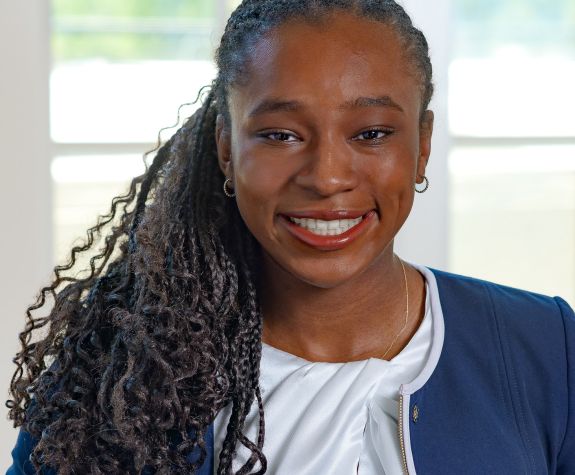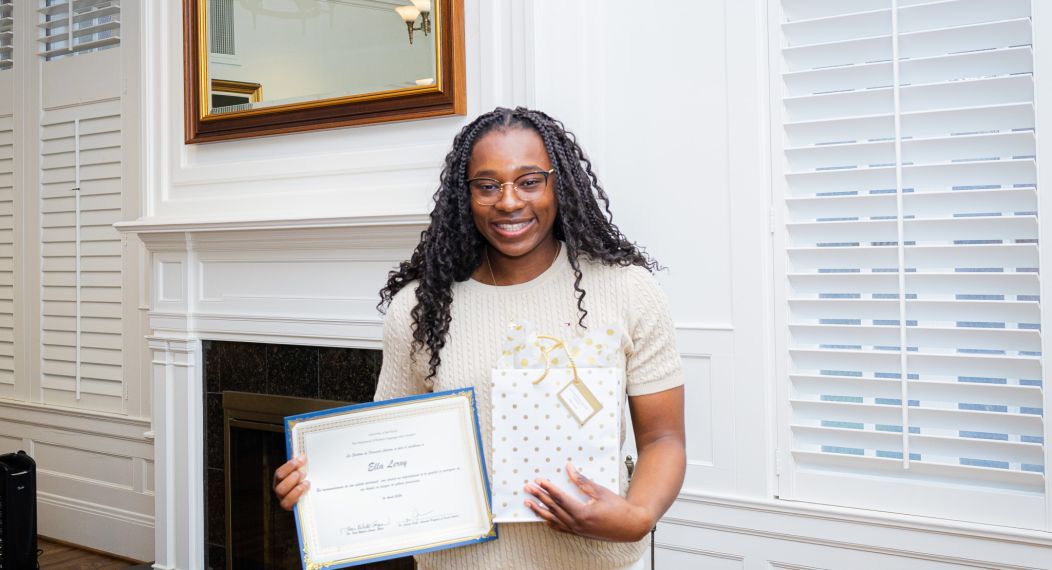
Major: Criminal Justice and French Studies
Graduation: May 2024
Hometown: Chicago, IL
How did you choose Pacific?
I chose Pacific because it offered the perfect environment to pursue both my athletic and academic goals. The professors in the Political Science and Sociology Departments have been incredibly supportive, not just in my academic journey, but also in my development as an athlete and individual.
When did you realize that you wanted to focus on criminal justice?
I came into Pacific as a Political Science Major. Political Science focuses more on political systems, ideologies, and theories. Although I enjoyed this, I found myself more engaged by the specifics of the criminal justice and legal systems. I went back and forth between sticking with political science and switching to sociology. I enjoyed certain aspects of both majors. After discussing my career and educational aspirations with my advisor, Dr. Becker, we decided together that the Criminal Justice Program would be a better fit. It was sort of the best of both worlds.
What professional careers can you pursue after studying criminal justice?
For individuals who want to work in the criminal justice system, most broadly, they can work with the police, the courts, or corrections. Many people go into law enforcement, nonprofit work, counseling, probation, or law. These are pretty broad categories with a lot of different jobs within them. Many people also choose to go into criminal and violence prevention work which can begin far before individuals interact with the criminal justice system.
Have you had any internships?
During my junior year, I interned at the San Joaquin Public Defenders Office, where I gained invaluable experience in the day-to-day operations of public defenders. I assisted the Senior Paralegal with post-conviction matters, including filing hundreds of petitions for expungement. This work was crucial in helping clients clear their records, and reducing barriers to housing, employment, education, and access to other public benefits.
This summer, I interned at Concrete Development, a nonprofit in Stockton that supports system-impacted individuals, through the PrEP program. My role involved learning about nonprofit work, grassroots organizing, and grant writing. I had the opportunity to contribute to their mission of equipping individuals with tools for self-healing, self-development, and self-advocacy, which was an incredibly rewarding and hands-on experience.
Do you feel like you're able to build your professional networks while at Pacific?
Absolutely. My professors have been crucial in helping me build my professional network. They were instrumental in securing internships at the Public Defenders Office and Concrete Development, and they provided exceptional support throughout my law school application process. The connections I've made with my professors are invaluable and will benefit me throughout my career.
What is your advice for new students coming to Pacific?
Go to office hours and build strong relationships with your professors. I cannot overstate how incredible the professors at UOP are. They are extremely knowledgeable and genuinely want their students to succeed. If you are willing to put in the work, they will make sure you succeed. I also encourage students to take as many upper-division electives as possible. This is where I have grown the most as a student and built the strongest relationships with my professors. These classes truly prepared me for law school and introduced me to passions that I didn’t even know I had.




